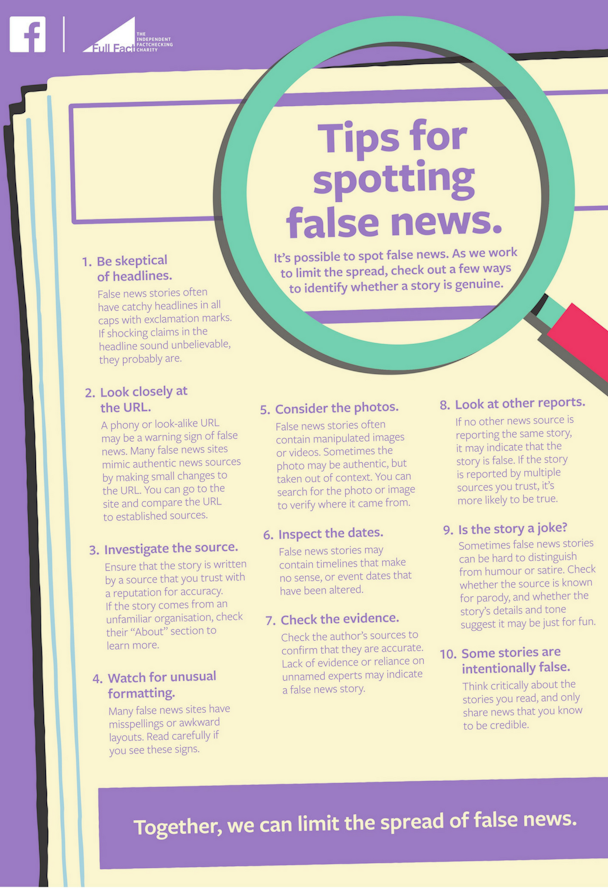Only 7% of audiences think Facebook and Twitter are doing enough to protect them from fake news
Just 7% of online audiences feel Facebook and Twitter are doing enough to protect them from fake news designed to manipulate public opinion, according to research conducted for the7stars.

Facebook recently turned to print ads to combat fake news
The study of 1000 British people found that 45% of readers feel it is difficult to understand what is fake news and what isn’t, with 70% of respondents wanting social media companies to take more responsibility for tackling the issue.
The research also found that old readers are less confident about the quality of the news they are reading, with 52% of those over 65 saying they found it difficult to tell the difference between real and fake news compared to 37% of 25-34 year olds.
“Fake news has been a lead story for a while now and our findings demonstrate that UK consumers are concerned and feel that social media brands must do more to help them navigate the difference between the truth and ‘alternative facts’,” said Frances Revel, associate director of insight at the7stars.
“While some readers are clearly confident about finding reliable news information, others, particularly older readers are less so. The study clearly shows that confidence in real news could be damaged unless action is taken to help consumers.”
The two social networks have come under fire in the past year from government officials and business people urging them to do more to combat the spread of misinformation, with cybersecurity bosses from GCHQ advising social networks to take more “social responsibility” to tackle the problem.
Last month Facebook turned to newspaper ads to try to address the problem ahead of the UK general election, when it paid for a series of of full-page splashes offering readers ’10 tips for spotting false news’. The ads feature advice around source checking, being wary of parody stories and casting a skeptical eye over headlines.
Massive networks of bots spreading misinformation have recently been discovered on Twitter in the run up to the UK general election, with yesterday’s statistics from the Oxford Internet Institute revealing that one in eight Twitter election shares links to ‘junk news’.

